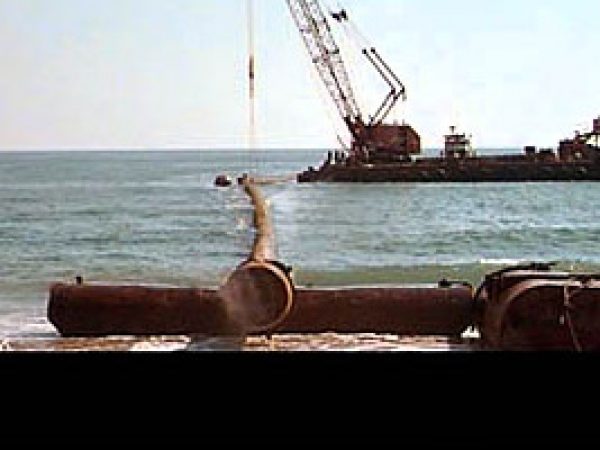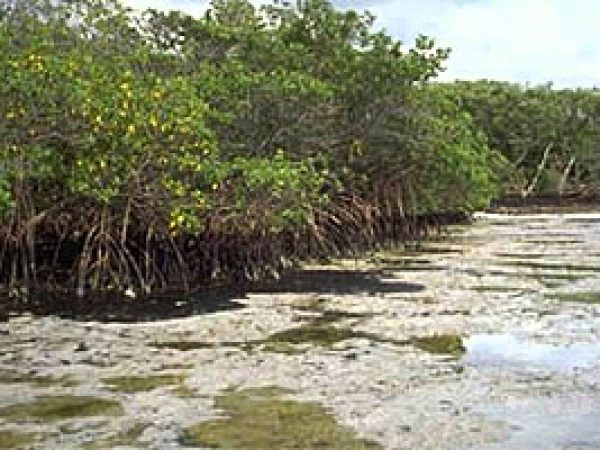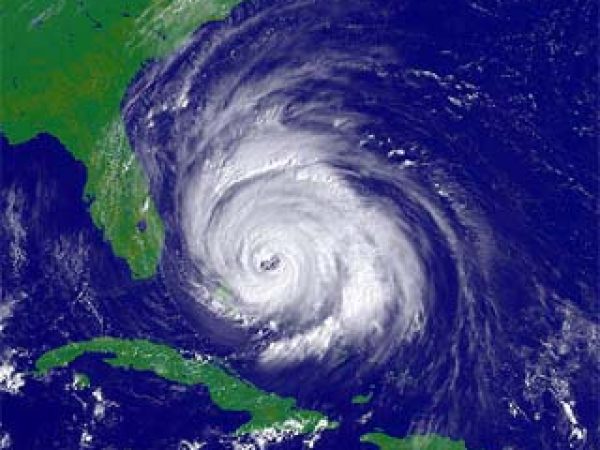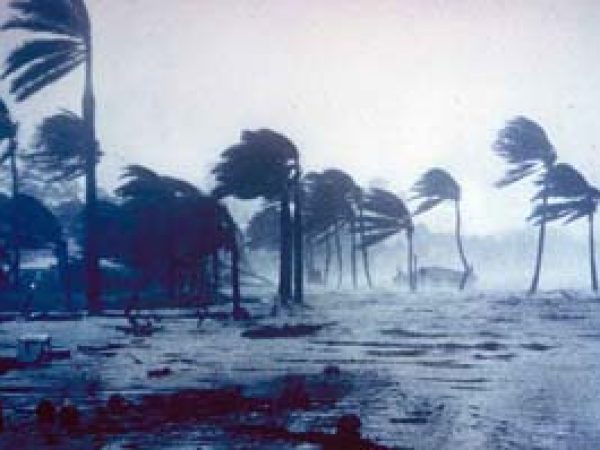Human Impacts

Mangroves are victims of dredging, filling, and diking, water pollution from oil spills and herbicides, and urban development within the state of Florida.
Dredging
Dredging suffocates mangroves when the aerial roots become flooded, preventing oxygen from reaching the root system.
Dredging and filling activities have caused flooding of mangrove habitat. Standing water covers the aerial roots, making it impossible for oxygen to reach these specialized roots as well as the underground root systems. Eventually this leads to the deaths of mangrove trees.
 Dredging. Photo courtesy Army Corp of Engineers
Dredging. Photo courtesy Army Corp of Engineers Oil surrounding mangroves. Photo courtesy Office of Response and Restoration/NOAA
Oil surrounding mangroves. Photo courtesy Office of Response and Restoration/NOAA
Water Pollution
Herbicides, oil spills, and other types of pollutants may kill mangroves.
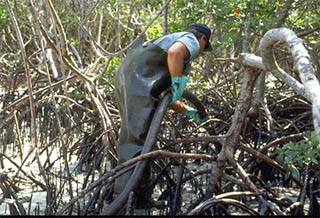
Causing tremendous damage to mangroves, herbicides, oil spills, and other types of water pollution may result in the death of these plants. Mangroves are very susceptible to herbicides as demonstrated in South Vietnam by the U.S. military by the defoliation and destruction of over 250,000 acres (1,012 square kilometers) of mangroves.
Oil spills cause damage to mangroves by coating roots, limiting the transport of oxygen to underground roots. Mangrove communities including invertebrates, fishes, and plants are also highly susceptible to damage from petroleum products.
Urban Development
Urban development of areas in and near mangroves results in the destruction of this habitat as well as other associated wetland habitats.

Responsible for total loss of mangrove habitat in some locations, urban development includes the construction of buildings and canal systems as well as the consumption of water by a growing human population. Human activity upland from mangroves may also impact water quality and runoff. These land and coastal activities result in increased erosion as well as the reduction of nursery areas supporting commercial and game fisheries.
Natural Impacts
Flooding
Mangroves are specially adapted to high salinities and temperatures, tidal changes, and anaerobic sediments. These same adaptations make them somewhat vulnerable to natural stresses. The aerial roots are especially sensitive to long periods of flooding. If these specialized roots are covered for extended periods of time by sediments or water, the mangroves may die due to lack of oxygen to the plant tissues.
Hurricanes
 Satellite image Hurricane Floyd near the Florida Coast
Satellite image Hurricane Floyd near the Florida Coast Hurricane making landfall. Photo courtesy South Florida Water Management District
Hurricane making landfall. Photo courtesy South Florida Water Management District
Powerful storms and hurricanes may also severely damage mangrove habitats. Winds, waves, and flooding may be destructive enough to clear entire mangrove islands.
Glossary terms on page:
dredging: to dig, gather, or pull out of a body of water.
herbicide: a chemical substance that controls or kills plants.
defoliation: to deprive of leaves especially prematurely.
erosion: the wearing away of soil, rock, and sediments, etc. by the action of wind, rain, and other weather-related elements.
